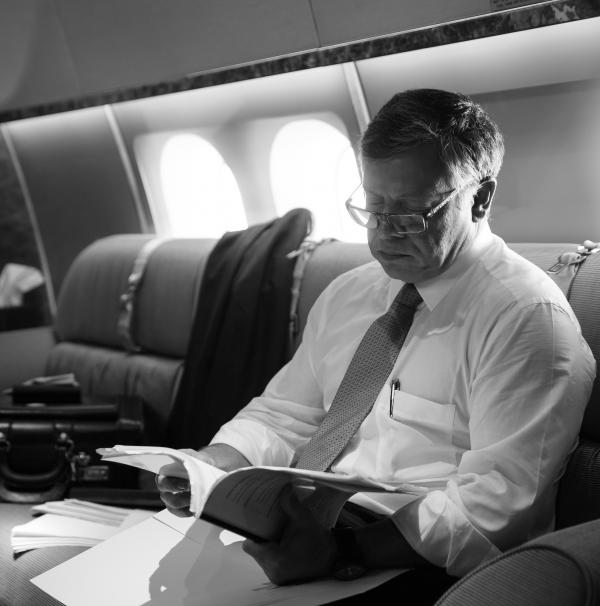Royal Vision
In 2004, in late Ramadan in the Hijri year of 1425, the idea for the Amman Message was born on a blessed night, when His Majesty King Abdullah II marked the Holy Lailat Al Qadr at the Hashemite mosque. After that, Jordan announced its intention to hold the International Islamic Conference in Amman in 2005.
" Amman Message clarifies, beyond any doubt, the values of compassion, mercy, respect for others, tolerance and freedom of belief that represent the principles that define good Muslim individuals and communities."
Drafted by the Royal Aal al Bayt Institute for Islamic Thought and several major Muslim scholars, the Amman Message clarifies, beyond any doubt, the values of compassion, mercy, respect for others, tolerance and freedom of belief that represent the principles that define good Muslim individuals and communities.
As the campaign against Islam became louder after the 11 September 2001 terror attacks in the United States, Jordan took an unwavering stance to refute the erroneous statements made about Islam.
The King defended Islam at the World Economic Forum in New York on 4 February 2002, calling for understanding the Islamic message of peace, since Islam is a religion of peace, love and tolerance.
On 4 August 2002, the Royal Aal al Bayt Institute for Islamic Thought hosted the Islamic Thought Conference, with the participation of over 80 Islamic scholars from 40 Arab and Muslim countries. Islamic scholars at the conference, held under the title “The Future of Islam in the 15th Hijri Century,” defended Islam as a religion of tolerance and moderation.
His Majesty’s efforts did not stop there. The King also launched a global campaign based on dialogue among all segments and spectrums within the various communities to clarify the true image of Islam.
His Majesty’s efforts to unite the Islamic community continued when the Royal Aal al Bayt Institute hosted the 17th International Islamic Fiqh Academy Session in Amman, where a hundred scholars, academics and experts from 44 Muslim countries had the opportunity to engage in a dialogue on ways to clarify the image of Islam.
Believing in the importance of building the character of conscientious Muslims, who are aware of the matters related to the spiritual and the material, in addition to the importance of building conscionable leaders among qualified preachers and imams, who can articulately express Islam’s tolerant message and steer clear from extremism or intolerance, His Majesty announced the establishment of the King Abdullah II Institute for the Qualification and Training of Preachers at the centre affiliated with the Ahel Al Kahf (Seven Sleepers) Mosque in Amman’s Raqim area.


